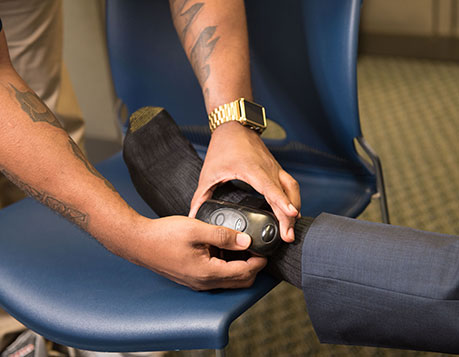Bail bondsmen are often portrayed as shady characters in movies and television shows. But in reality, these professionals play a critical role in the criminal justice system. They help ensure that defendants can be released from jail while waiting for their trials. And they also provide a valuable service for families who want to stay connected with their loved ones during the stressful process of a criminal case. In this article, we’ll bust some myths about bail bondsmen and explore how they build relationships with “baddies.”
Bustin’ Myths: Bail Bondsmen Aren’t Villains!
First and foremost, let’s dispel the notion that bail bondsmen are shady characters who profit off the misery of others. While it’s true that they make money by posting bail on behalf of defendants, they also provide a valuable service for those who cannot afford to pay bail themselves. And they take on significant risks by putting up their own money as collateral. If a defendant skips town, the bail bondsman is on the hook for the full amount of the bail.
Furthermore, bail bondsmen are subject to strict regulations and must follow specific guidelines when conducting business. They cannot charge excessive fees, harass defendants or their families, or engage in unethical behaviors. So while they may not be the most popular people in the criminal justice system, they are certainly not villains.
From Foe to Friend: How Bonding with Baddies Works
So how do bail bondsmen build relationships with defendants who are often viewed as “baddies”? It starts with understanding the person behind the charges. Bondsmen take the time to get to know the defendant and their family, learning about their backgrounds, circumstances, and goals. By establishing a personal connection, they can provide emotional support and guidance throughout the legal process.
This relationship-building also helps bondsmen ensure that defendants show up for court dates and comply with the conditions of their release. By keeping lines of communication open, they can monitor the defendant’s progress and offer assistance if needed. And when the case is resolved, bondsmen often stay in touch with their clients, providing resources and referrals for addiction treatment, job training, and other services.
In short, bail bondsmen play a critical role in the criminal justice system by helping defendants and their families navigate a challenging and stressful process. They are not villains, but rather professionals who provide valuable services and build relationships with those in need. So the next time you see a bail bondsman portrayed as a shady character on TV, remember that the reality is much more complex and nuanced.
Article by:
AA Best Bail Bonds
2501 Airport Fwy.
Fort Worth, TX 76111
Phone: 817-831-3700






